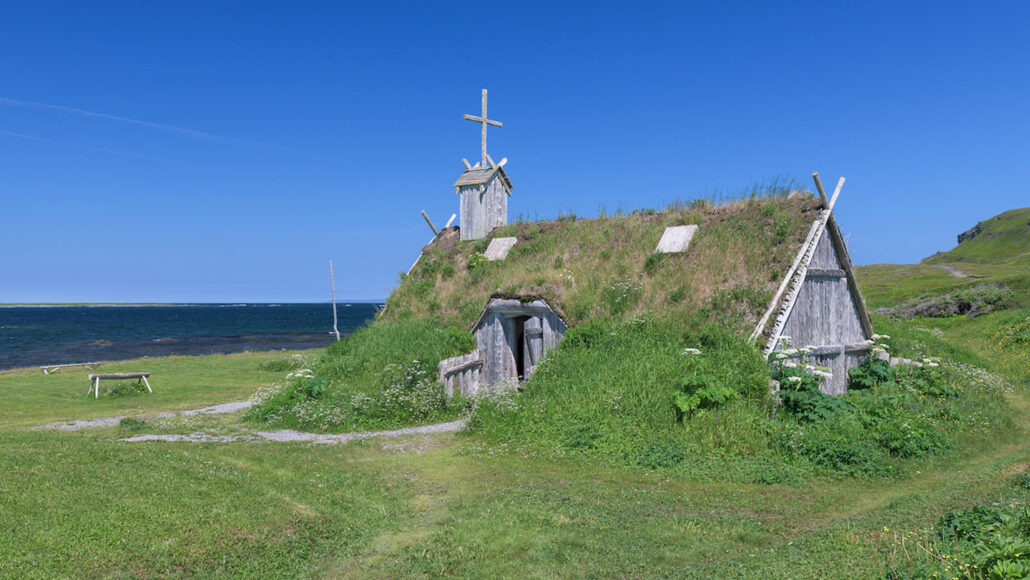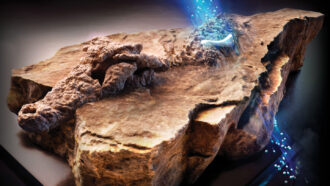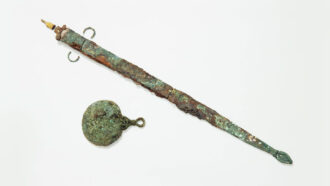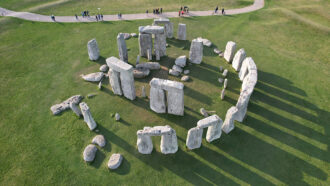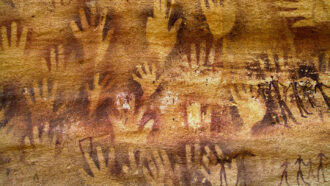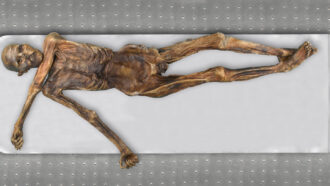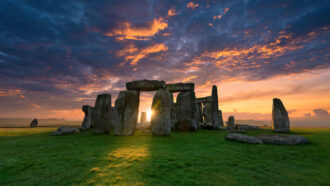annual: Adjective for something that happens every year.
carbon: A chemical element that is the physical basis of all life on Earth. Carbon exists freely as graphite and diamond. It is an important part of coal, limestone and petroleum, and is capable of self-bonding, chemically, to form an enormous number of chemically, biologically and commercially important molecules.
cosmic rays: Very high-energy particles, mostly protons, that bombard Earth from all directions. These particles originate outside our solar system. They are equivalent to the nucleus of an atom. They travel through space at high rates of speed (often close to the speed of light).
geological: Adjective to describe things related to Earth’s physical structure and substance, its history and the processes that act on it. People who work in this field are known as geologists.
metal: Something that conducts electricity well, tends to be shiny (reflective) and is malleable (meaning it can be reshaped with heat and not too much force or pressure).
solar: Having to do with the sun or the radiation it emits. It comes from sol, Latin for sun.
tissue: Made of cells, it is any of the distinct types of materials that make up animals, plants or fungi. Cells within a tissue work as a unit to perform a particular function in living organisms. Different organs of the human body, for instance, often are made from many different types of tissues.
tool: An object that a person or other animal makes or obtains and then uses to carry out some purpose such as reaching food, defending itself or grooming.
United Nations Educational, Scientific and Cultural Organization: Also known as UNESCO, it's based in Paris, France. It was created in November 1945, several months after the close of World War II. Among this U.N. agency’s major accomplishments, it created a conference to set up an international system for issuing copyrights. In 1972, it created a world heritage program, inducting the first sites onto its list for protection in 1978. That same year, it adopted a declaration that support for racism had no scientific basis. In 2000, it committed governments across the world to providing basic education for all residents.
Vikings: Seafaring explorers who came from Scandinavia. They traveled as traders and raiders from the late 700s to roughly 1100 A.D. Although Vikings have a reputation for warring, history suggests most started as farmers that took summer trips to trade and expand their territories.
